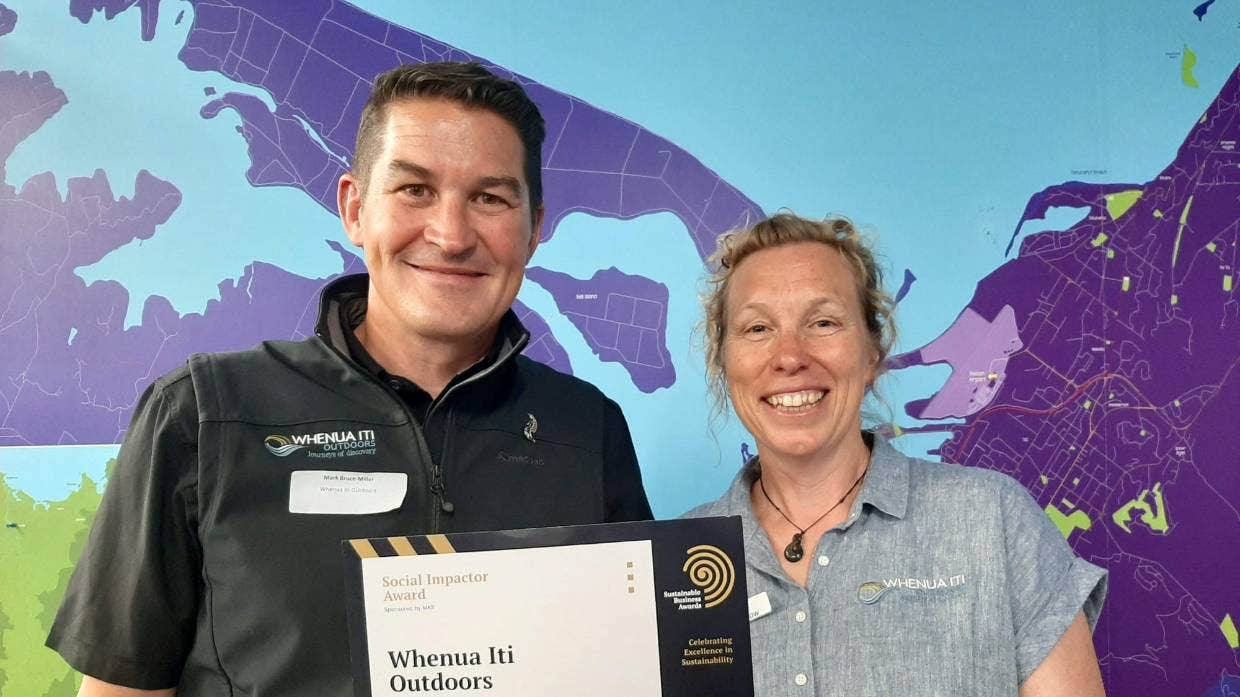11 Dec 2024

Tired Earth
By The Editorial Board

It is an organisation that drives more than 2000 school students around the top of the South Island each year, to take part in outdoor education programmes.
So Whenua Iti Outdoors (WIO) was surprised to discover it emitted more than double the amount of carbon from food, than from transport.
According to initial calculations by the not-for-profit establishment, based near Motueka, last year, Whenua Iti produced 72 tonnes of carbon from the food it served students in 2020.
That compared to its second-highest source of emissions; 31 tonnes of carbon from the petrol and diesel it used driving students cross Nelson, Tasman district, Marlborough, Kaikoura and the West Coast (in about eight buses and vans).

Whenua Iti calculated the amounts using an online calculator from carbon offsetting company, Ekos.
Nettie Stow, Whenua Iti’s project and funding lead, said the food it provided students with in a year was the equivalent of three meals a day that 29 people would eat.
The organisation assumed one of the 29 was a vegetarian for its carbon calculations, she said.
Whenua Iti aimed to eventually become carbon zero, and the Ekos calculator was a “broad brush tool” on the first steps towards that goal, Stow said
“If we looked into this in more detail, we could be more concise about our actions too.”
Steps taken by Whenua Iti so far included making sure at least one meal a week on its programmes was vegetarian, reviewing suppliers to reduce delivery miles, using the group’s electric car more often and planting more trees on site to absorb carbon and reduce mowing.
Ekos’ carbon analytics team leader, Ian Challenger, said the free calculator was a good place to start for people wanting to reduce their carbon footprint.
But it would make assumptions about how food was produced and transported, he said.
“A tool like this is great because it gives them an indication of where their emissions lie, but to make it more accurate and more able to do something about it ... they really need to get a very accurate figure.”
Companies like Ekos helped clients work out carbon emissions from the transportation of food, by measuring the weight of the food, Challenger said.
“We can go back further and talk to the farms and look at how they produce it and the amount of fuel and electricity that they use.”
Things like emissions from a tractor used in the production of food, and from electricity a factory used for food packaging, counted against the food that people bought, he said.
In general, people and groups could reduce their carbon footprint from food by sourcing it locally – buying directly from growers through things like farmers markets, if feasible.
If buying from supermarkets, they could choose seasonal and locally-produced food, rather than imported products.
To reduce emissions from locally produced food, people could choose organic rather than more intensively produced food.
They could consider preparing more vegan meals, which were less carbon intensive.
“The amount of land that you need as a meat eater is considerable compared to being a vegetarian, and the amount of land you need for being a vegetarian compared with being a vegan ... is considerable again,” Challenger said.
Source : stuff.co.nz
Comment